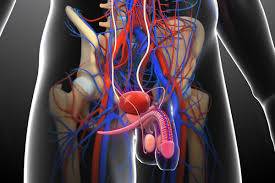Hypogonadism
Hypogonadism is a condition where the body produces insufficient levels of sex hormones—testosterone in males and estrogen or progesterone in females. In males, this condition affects sexual development, fertility, and overall health.
---
Causes
Hypogonadism is classified as primary (originating from the testes) or secondary (caused by problems in the hypothalamus or pituitary gland).
1. Primary Hypogonadism:
Klinefelter Syndrome: A genetic condition affecting testicular function.
Undescended Testicles: Testicles that fail to descend during fetal development.
Testicular Injury or Infection: Trauma, mumps orchitis, or radiation/chemotherapy.
Autoimmune Disorders: Conditions attacking the testes (e.g., autoimmune orchitis).
Aging: Gradual testosterone decline with age.
2. Secondary Hypogonadism:
Pituitary Disorders: Tumors, trauma, or surgery affecting hormone regulation.
Hypothalamic Issues: Conditions like Kallmann syndrome.
Chronic Illness: HIV/AIDS, severe stress, or malnutrition.
Medication Side Effects: Opioids, corticosteroids, or anabolic steroids.
Obesity: Excess fat tissue can disrupt hormone balance.
3. Congenital Causes:
Present at birth, such as genetic mutations or developmental issues.
---
Signs and Symptoms
In Males:
1. Delayed Puberty:
Lack of facial/body hair, deep voice, or muscle development in adolescents.
2. Sexual Dysfunction:
Low libido, erectile dysfunction, or infertility.
3. Low Testosterone Symptoms:
Fatigue, reduced strength, and loss of bone density.
4. Reduced Secondary Sexual Characteristics:
Loss of body hair or smaller testicle size.
5. Psychological Effects:
Depression, irritability, or difficulty concentrating.
In Children:
Poor growth, small genitals, and lack of puberty onset.
---
Effects
1. Infertility:
Reduced or absent sperm production.
2. Osteoporosis:
Weakened bones due to low testosterone.
3. Decreased Muscle Mass and Strength:
Loss of physical stamina and endurance.
4. Cardiovascular Risk:
Testosterone deficiency may increase heart disease risk.
5. Impaired Quality of Life:
Emotional and mental health challenges.
6. Gynecomastia:
Development of breast tissue in males.
---
Solutions
1. Diagnosis:
Blood Tests: Check testosterone levels and other related hormones (LH, FSH).
Imaging: MRI or ultrasound to detect structural abnormalities.
Genetic Testing: For conditions like Klinefelter syndrome.
2. Treatment Options:
Hormone Replacement Therapy (HRT):
Testosterone therapy via injections, patches, gels, or pellets for males.
Fertility Treatments:
Gonadotropin injections or medications like clomiphene citrate.
Surgery:
Correct anatomical issues, such as undescended testicles.
Lifestyle Changes:
Weight loss, exercise, and managing chronic conditions like diabetes.
Medication Adjustments:
Avoid drugs that suppress testosterone production.
3. Psychological Support:
Counseling or therapy to address emotional and mental health issues.
4. Preventive Measures:
Avoid substance abuse (e.g., anabolic steroids, opioids).
Regular health check-ups, especially for those at risk.
---
Early diagnosis and treatment of hypogonadism can significantly improve symptoms, prevent complications, and enhance quality of life. If you experience symptoms, consult an endocrinologist or healthcare provider.


